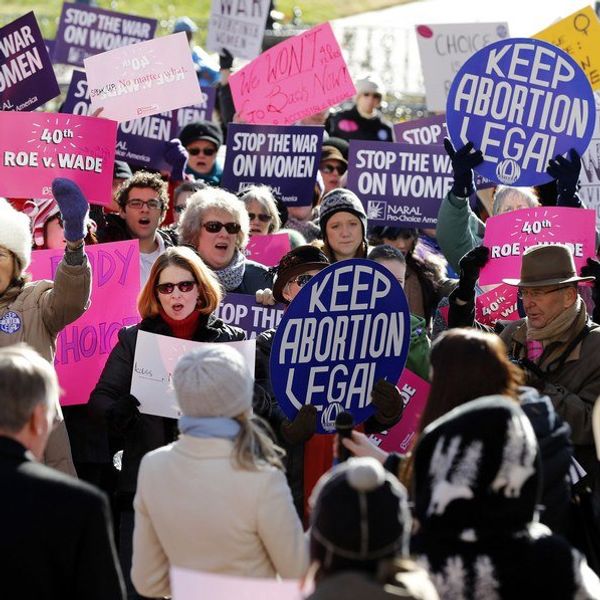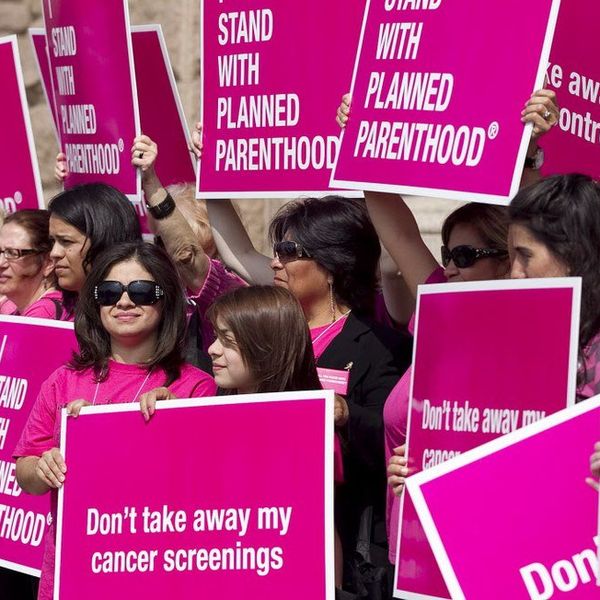Whether you are excited or devastated by President-elect Trump’s recent election, it is important that you know if and how access to contraception and other reproductive care could change under the Trump Administration. This article mainly covers access to health care options including female contraception and female reproductive rights, though the impacts of these changes are not isolated to women.
Concerns about the access to and cost of health care services for women are leaving many scared for their future. In response to this election, many women are turning to their local clinics for services like intrauterine device (IUD) insertion out of fear that they will not be accessible under the Trump Administration. Though these concerns are valid, these decisions should not be made without further research and discussion. It is important to know what options will be in jeopardy with Trump in office and what steps can be taken to ensure safe and accessible options in the future.
The release of President-elect Trump’s “100-Day Plan,” which chronicles his goals and objectives for his first 100 days in office, has many Americans, particularly women, unsure of their future. One of Trump’s major goals is to “repeal and replace Obamacare,” referred to in this article on the Affordable Care Act.
President-elect Trump has been outspoken in his criticism of the Affordable Care Act (ACA), calling it a “total disaster” and many expect him to take this goal seriously. The ACA was revolutionary in providing healthcare to millions of previously uninsured Americans, particularly those who have historically had limited access due to financial limitations. The loss of such a program would undoubtedly have effects on the American public. Those who will be most affected include pregnant women who will, in some cases, no longer have access to prenatal care which leads to healthier, safer pregnancies for mothers and children. I spoke with Dr. Allison Kay, a resident physician in obstetrics and gynecology at the University of Washington School of Medicine about these topics. She expressed that repealing the ACA could be “devastating” for her patients, the majority of whom are immigrants that “already feel marginalized in this society.”
If President-elect Trump is successful in abolishing the ACA, an estimated 22 million fewer Americans will have health insurance. Last year, the Senate and House passed a bill that aimed to undo the majority of the work achieved by the ACA, and though it was vetoed by President Obama, it highlighted that many were unsatisfied with the current system. President-elect Trump’s repeated statements on the ACA make it more than likely that he would pass such a bill, leaving millions without health care. Recent speculation has emerged as to whether a President Trump will repeal the ACA altogether or reform certain aspects. If a President Trump were to reform specific sections of the ACA, it could be expected that these changes that would disproportionally affect vulnerable populations.
The ACA allows young, uninsured adults to remain on their parents’ health care plans until the age of 26, and many feel that its repeal would be devastating for young adults. Dr. Kay explained that losing this benefit would target an especially vulnerable population of young women who might be forced to pay significantly more for contraception and healthcare services. Due to challenges related to financial access, this would force many women to go without safe and reliable forms of contraception.
Due to the uncertainly in the next few years, some women are opting for long-term forms of contraception before President-elect Trump is in office. IUDs are a popular form of contraception for many reasons, perhaps the greatest of which is that they can last anywhere for 3-12 years depending on the type. As Dr. Kay noted, many women prefer IUDs to contraceptive pills because they don’t require taking a daily medication. Because of the ACA, many women currently have access to IUDs and other forms of contraception for little or no cost. Not all brands of IUDs are covered by the ACA or are the right contraceptive form for all women. The cost of an IUD for uninsured women can exceed $1,000 and the cost of birth control pills can reach $50 a month. If President-elect Trump is able to de-fund Planned Parenthood and repeal the ACA, it is likely that access to and cost of IUDs will be compromised. Dr. Kay encourages those who are interested in long-acting contraception like IUDs to get care in the next few months.
In almost every election, access to abortion is a key topic. This election was no exception, with two candidates who were particularly outspoken on the issue. Trump has made no attempts to conceal his pro-life opinion, going so far as to say that abortion should be banned altogether and women who do have abortions should face “some sort of punishment”.
Trump and Pence, have gone on to promise the public that they will work hard to appoint pro-life Supreme Court Justices. There are currently eight Supreme Court Justices – four each appointed by Democratic or Republican presidents. Trump will likely appoint a justice whose values are even more conservative that the recently deceased conservative justice, Antonin Scalia. After the appointment of this new justice, The Los Angeles Times predicts that “There will almost certainly be a majority to overrule Roe vs. Wade and allow states to prohibit abortions”. This would not necessarily mean that abortion was banned outright – the choice would fall upon the states. This does mean, however, that many states would likely eliminate abortion access. This could further divide the country both socially and politically and leave many women fearing for their future access to abortions and reproductive care.
Many pro-life citizens vilify Planned Parenthood as the primary perpetrator of abortion. The reality of this is that Planned Parenthood provides much-need care to low-income populations in services ranging from flu shots to STI testing – for both men and women. Abortion services account for 3% of the total services provided though necessary funding and support of the organization is often dependent on arguments surrounding abortion.
One of the most salient points of the impending changes to contraception access is that there are certain populations that may feel the effects of these potential changes much more strongly than others. Currently, the ACA prohibits discrimination in health care programs based on factors including race, sexual orientation, gender, age and disability. This could all change if a President Trump were to dismantle the ACA system and standard of care. Some feel that Medicaid is sufficient for communities in need. Dr. Kay highlighted that the reality of this is that Medicaid leaves a large section of the population uninsured – those whose incomes are just high enough to deny them access while being low enough that they are unable to afford even basic coverage.
President-elect Trump’s election has caused many women to fear for their reproductive rights and access to contraception. Many of these fears are not without validity, particularly if the ACA is repealed. However, rushing to the nearest clinic for an IUD is not necessarily the right answer for many women either. Though IUDs can be convenient and effective forms of contraception, they are not an ideal solution for all women for a number of reasons. And while abortion laws may fall upon states, voters will not be without power. President-elect Trump’s election has many concerned for the future of their healthcare access and the changes to come still remain to be seen. With this said, the best way to combat these potential changes is continued support of services like Planned Parenthood, the Affordable Care Act and other programs aimed at providing care to low-income individuals. Personal education on reproductive rights and access will work to regain some of the control that a President Trump will undoubtedly attempt to take from women and vulnerable populations.
For additional information, I have attached a number of articles and resources:
Planned Parenthood – Birth Control Options
Planned Parenthood – IUDs
Planned Parenthood – Women's Health
National Women's Law Center – Health Care and Reproductive Rights
Planned Parenthood – Donate
Note: Throughout the articles, the terms “woman” and “women” are used. In the context of this article, which is primarily concerned with medical access and contraception, this term is used to mean those who were assigned female at birth, cisgender women. As you read this, please recognize the limitations of this term for gender non-binary or trans* individuals. Thank you.





















